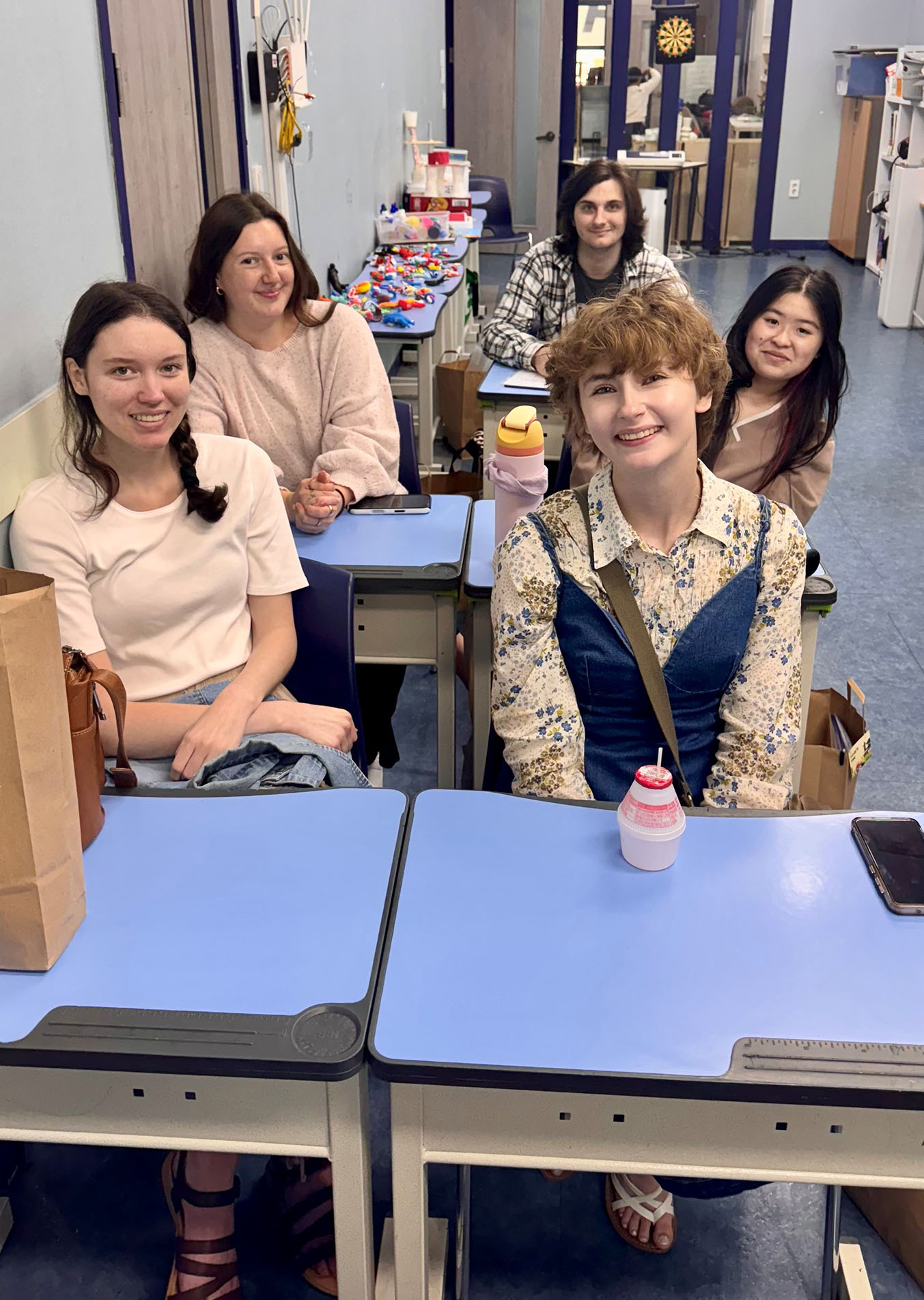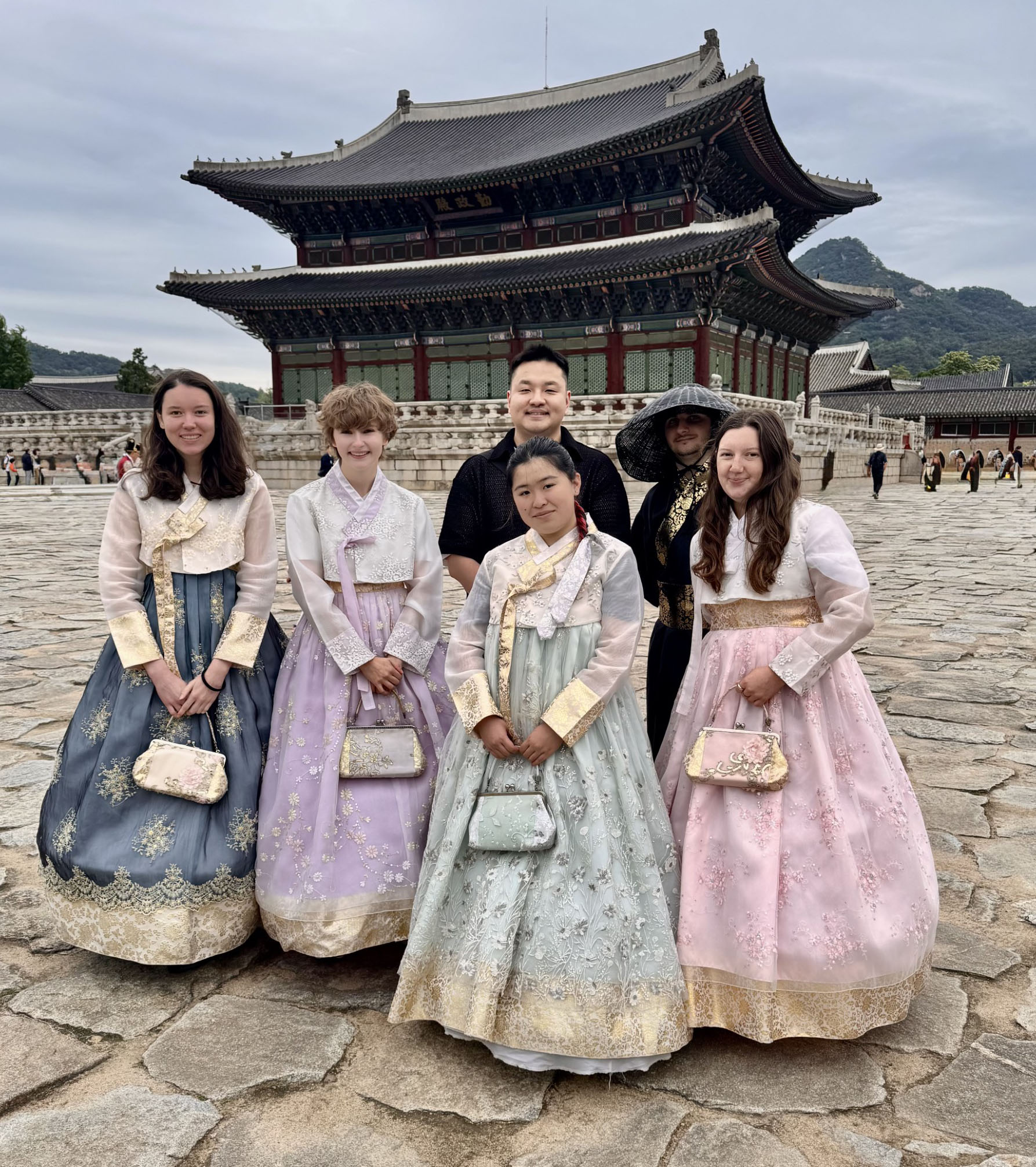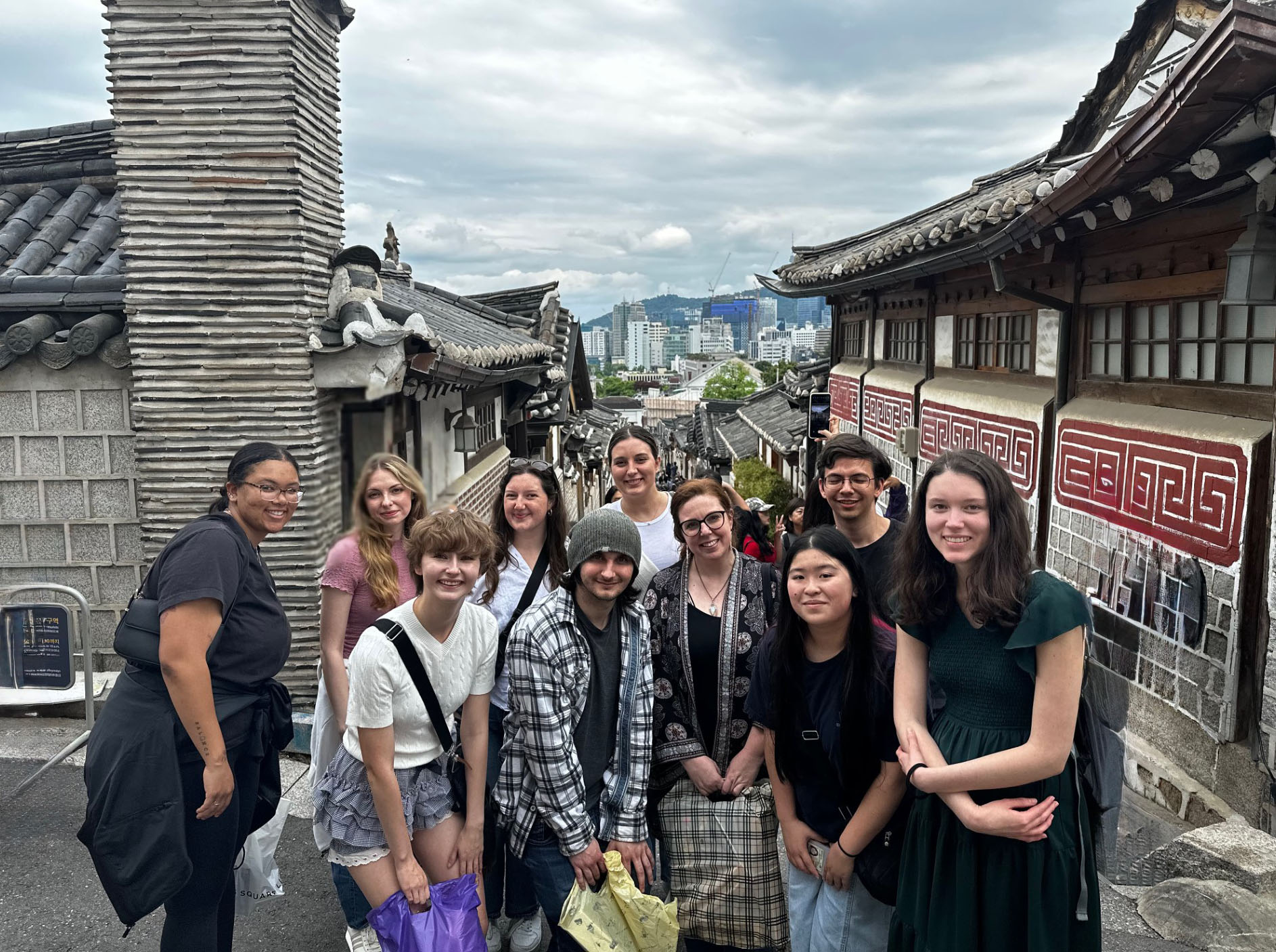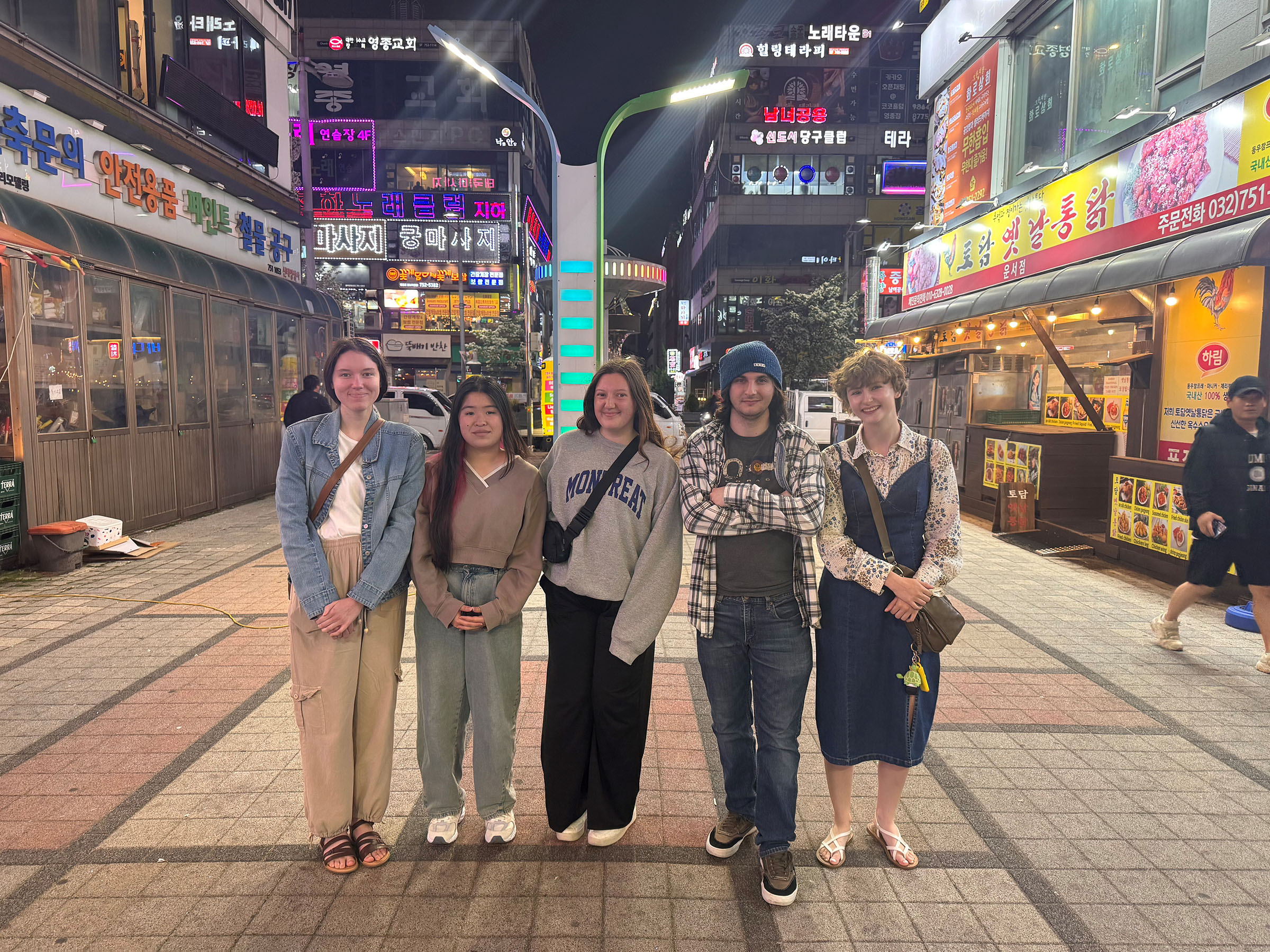GCSU students teach and learn during new South Korea study abroad program

By Margaret Schell
T his summer, five Georgia College & State University students taught English to South Korean children ages 5 to 15. The GCSU students designed, practiced and implemented their lessons in classrooms with up to eight Korean students.
Teaching English in a foreign country affords students a multicultural perspective that employers say they want in employees. International work experience speaks volumes to employers looking to hire. This is the first year of the South Korea program; Georgia College students also studied abroad in Belize, Tanzania and across Europe in faculty-led study abroad programs over the summer.
“It’s one thing to travel as a tourist, but to live, work and train as a teacher in a foreign country takes resolve and grit. Employers will be incredibly impressed by this,” said Kathryn Livingston, lecturer of English at Georgia College. “It also demonstrates a willingness to lead, grow, learn and adapt in unfamiliar settings.”
“Teaching English as a Foreign Language Study Abroad Program puts our students front and center, representing their country, university and culture to Korean students,” she said.
The students represented a variety of majors: Emily Brown is a senior English major, Lauren Gibson is a senior psychology major, Kate Hollowell is a senior political science major, Tucker Jones is a senior English major, and Mooney Kang is a sophomore majoring in fine arts and theatre.
A major accomplishment for the South Korea study abroad is that each student who successfully completed the program earned an International TESOL Certificate – a globally recognized credential that qualifies them to teach English to non-native speakers anywhere in the world.
GCSU students taught their Korean students how to read, write, listen and speak English. They also designed and gave detailed presentations, incorporating these concepts with vocabulary words, sentence starters, fun music and videos.
“As our students progressed through the lessons, they played interactive games that got the children up, moving and talking,” Livingston said.
Gibson of Murrayville, Georgia, plans to attend graduate school for mental health counseling.
“I want to pursue this career to help people find the good in the bad and help them make the changes they want to live a happier life,” she said.

Gibson thought it was rewarding how her students were excited to show other kids and their parents what she taught them in class.
“It makes me happy to know I helped a student even if only a little,” she said. “Everyone has a reason for what motivates them to do what they are doing. By learning what motivates each individual, I hope to keep them engaged in learning.”
When teaching English as a foreign language in Korea, GCSU students were graded on their attendance, timeliness, attitude and enthusiasm.
Upon returning home, the Georgia College students took an online portion of the course to learn how to adapt English as a Foreign Language practice to an English as a Second Language classroom.
“Graduates of this study abroad program may not become teachers, but they could be guides, directors, trainers or even parents,” Livingston said. “However, the goal is the same: Understanding the power of language and learning to lead with an empathetic, multicultural mindset — the one who understands instead of dismisses. That’s what makes this ESL section relevant. It’s their opportunity to bring that empathy home.”
“In Korea, we were taught how to be culturally sensitive teachers,” said Brown of Rosemount, Minnesota. “Cultural sensitivity and empathy go hand in hand. A teacher who’s not empathetic is not fit for the profession.”
This study abroad program reinforced Brown’s decision to be an English teacher.
“Teaching makes me feel fulfilled,” she said. “I enjoyed everything [about this study abroad program], but teaching students was the real highlight.
Livingston wants her students to take away a deep sense of pride in their accomplishments abroad.
“Anytime our students face a new challenge, I hope they remember how bravely and thoughtfully they navigated this study abroad program,” she said. “I also hope they never forget the profound impact of even the smallest act of kindness, especially for those who are in a new, sometimes frightening, place. Those moments of human connection are everything.”
Header Images: Five students participated in the new South Korea study abroad program in Summer 2025. Photos by Kathryn Livingston. The GCSU International TESOL Program in Korea is open to all majors and is next scheduled for Summer 2027. If you would like to receive program updates, email kathryn.livingston@gcsu.edu. Scholarships and honors options are available.

